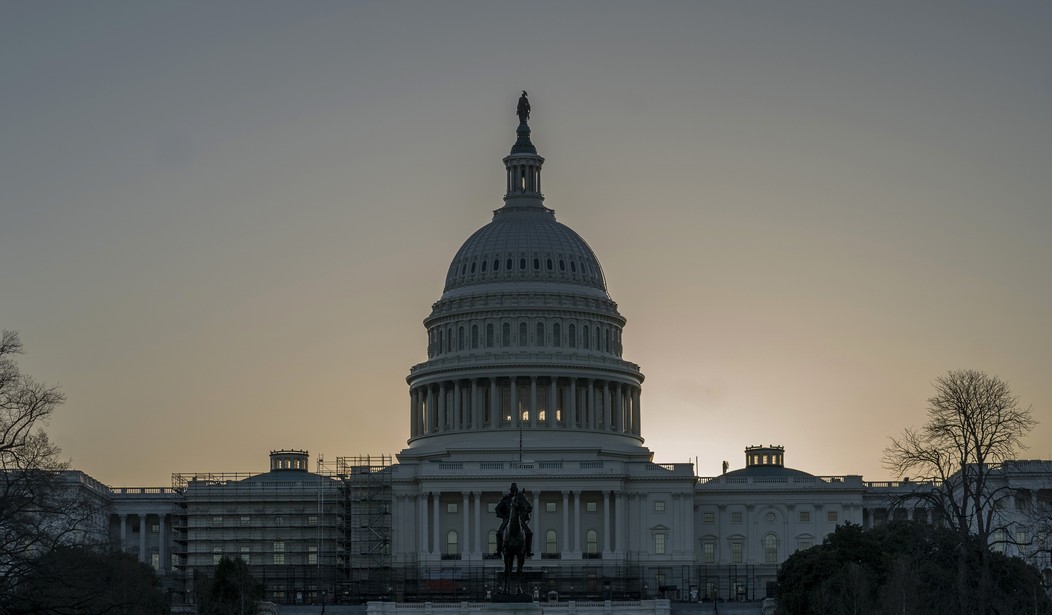In case you haven’t noticed, it’s an election year. That means the whole House and a third of the Senate are very personally focused on November 5. Few floor votes between now and then will be anything other than partisan posturing on bills that everyone knows are not going to be signed into law. But after the election and before the new year, the lame duck Congress will get busy passing bills to keep the government funded so as not to risk a shutdown – but without the pressure of an election to hold them accountable. That’s when the American people have to watch out.
While most of us are shopping for Black Friday bargains, Congress will be sneaking special interest pet projects into spending bills which are colloquially known as “Christmas trees” because they can be used to attach, like ornaments, all sorts of amendments that would never have the support to pass on their own. And just like when you get that ugly sweater or stale, regifted fruitcake, American taxpayers could also get an unwelcome surprise.
In recent weeks, the House Energy and Commerce Health Subcommittee and the House Ways & Means Committee both advanced legislation that would extend for two years popular telehealth flexibilities in Medicare. There’s nothing wrong with this telehealth extension other than its $2 billion price tag, which is a pretty heavy ornament to hang on the tree.
To avoid breaking off the branch, Congress typically lightens the weight of the ornaments with “pay-fors” – policies that save enough money to offset the cost and avoid adding to the federal budget deficit. In this case, they achieve this offset by including a set of regulations that apply to Pharmacy Benefit Managers (PBMs) in Medicare Part D.
PBMs administer the prescription benefits of your health insurance, whether provided by your employer or Medicare. Between prescribers, manufacturers, wholesalers, pharmacists, insurers, and payers, the drug supply chain is complicated with many players having divergent interests. PBMs run a sophisticated business that, in the end, makes it simpler for patients to get safe and effective medications. Typically, the only interaction you might have with your PBM is when you give your insurance card to the pharmacist and you pay $8 for a medication the pharmaceutical company charges $100 for.
Recommended
The PBM regulations in the telehealth bill include three components: transparency, more government enforcement, and a policy called “delinking” that would require PBMs in Medicare Part D to get paid through service fees rather than pay-for-performance fees.
The Congressional Budget Office (CBO) score of this package of policies estimated it would save money. However, as I’ve written before, evidence shows that the delinking provision would actually cost taxpayers billions. Very simply, when they’re paid for better performance, PBMs, like all of us, perform better.
During the Ways & Means mark-up, Rep. John Larson (D-CT) cited a University of Chicago study that estimates delinking in Medicare Part D will cost $3 to $10 billion per year. The report concludes that “this ‘delinking’ policy has the potential to significantly (i) increase drug prices, (ii) reduce drug utilization, and (iii) redistribute billions of dollars annually from patients and taxpayers to pharmacy companies and drug manufacturers.”
So, how did this policy get classified as a pay-for?
The CBO has scored larger policies that include Part D delinking and determined the entire package would offset the cost of the telehealth bill. But importantly, CBO has never directly released a score of only delinking in Medicare Part D.
Given the fact that scholars say delinking would actually cost billions, imagine how much would be saved if that provision were removed from the legislation. At the very least, there is a lot of confusion around the price or savings of the various PBM provisions.
It doesn’t have to be this complicated. The obvious solution is for CBO to clarify what it believes to be the direct budgetary impact of the isolated delinking policy. Score it on its own.
Until that happens, Congress should put the brakes on this purported pay-for. There is every reason to believe it is not a pay-for at all, but rather a “pay-up” being handed to the American taxpayer. When the bill comes due, it may make for an unhappy holiday season with legislation that could include a very expensive lump of coal.
Jason Altmire is an adjunct professor at the Texas Tech University Health Sciences Center. He has been an executive in both the hospital and health insurance industries, and from 2007 to 2013 served three terms in the U.S. House of Representatives.
























Join the conversation as a VIP Member